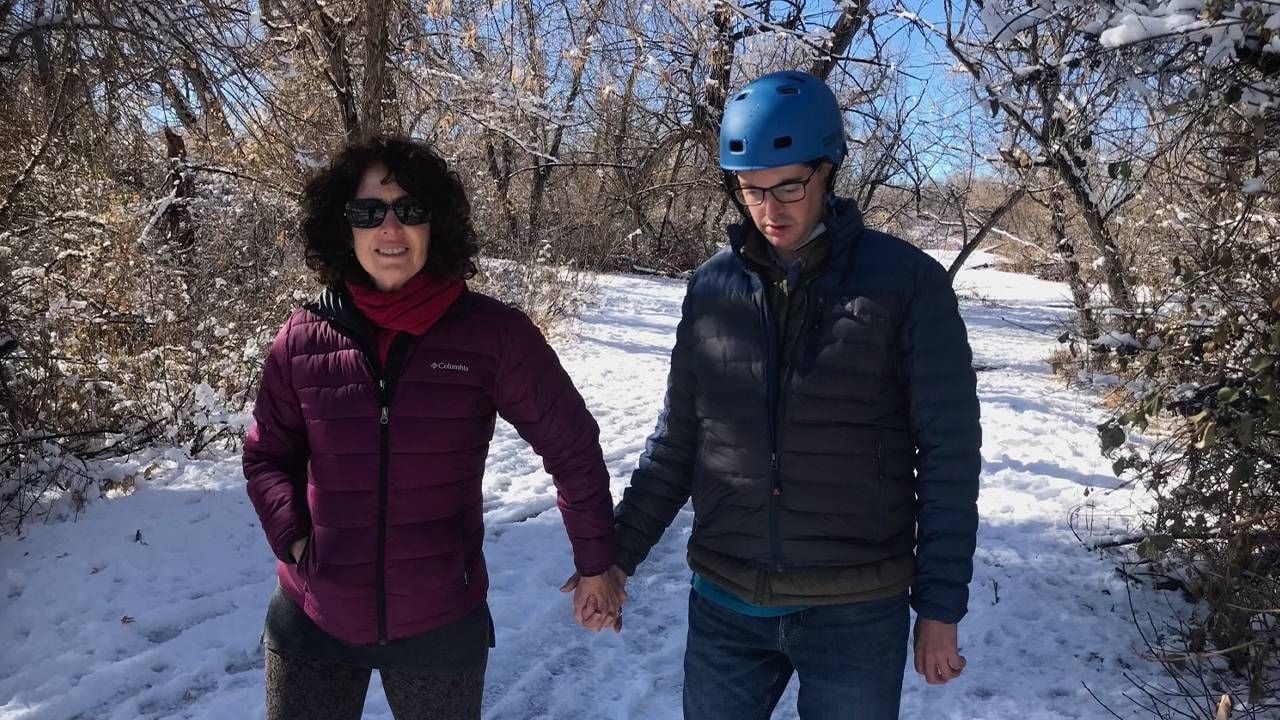Why Some Adults with Developmental Disabilities Become Wards of the State
Parents of adult children with an intellectual or developmental disability (I/DD) sometimes assume family will step in when they die. That's not always the case.
Some nights, Ann Monahan can't sleep.

"I'm awake thinking about the 24-year-old disabled man sitting in his parents' basement," says the Arizona Autism Coalition board president.
"What if he doesn't have any siblings to look after him when Mom and Dad are gone? And if he becomes a ward of the state, what does his life look like then?"
It's a question many parents and caregiving professionals are losing sleep over these days. Some believe that, thanks to inadequate government funding and a burdensome workload, state-appointed legal guardians aren't equipped to effectively care for their loved ones once Mom and Dad are gone.
Others point out that parents often haven't made post-mortem plans for the care of their disabled kids.
People with Disabilities Living Longer
According to the Centers for Disease Control and Prevention, the number of people with a disability aged 65 and older is on the rise. Those born with, or who have acquired a disability at a young age, are often living longer than in previous decades.
"It felt like a kind of abandonment to let a government agency assign a stranger to make decisions for my brother."
The number of older American adults with an intellectual or developmental disability (I/DD) is expected to reach 1.2 million in the next eight years. That's nearly double the I/DD population of 20 years ago.
As people with disabilities are living longer, many families are scrambling to help them do so with dignity. Without proper planning, that can mean winding up a ward of the state.
The term "ward of the state" (or "ward of the court") describes a person placed under the protection of a legal guardian by a court of law. A ward is more often a minor child or an older adult who's no longer able to make decisions for themselves, though disabled adults who are found legally incompetent can also be appointed a guardian.
"It's done in the spirit of protecting that person," says Asim Dietrich, the supervisory attorney for investigation, monitoring and accountability at the Arizona Center for Disability Law. "And even though they've appointed a person to look after the ward, the court may continue to make decisions on the ward's behalf."
Who's Keeping Tabs?
Government-appointed guardians work with clinical teams and service providers to guide the life of someone with I/DD. Oftentimes, Dietrich says, the caregivers at residential facilities are tasked with keeping tabs on a person with I/DD who's a ward of the court.
"There are federal mandates in place to monitor these facilities," he says, "so it's not like these people are being abandoned to care staffs. Though I think more could be done by state agencies to prevent abuse and neglect of people who are wards of the state, it's important to note that abuse also happens in situations other than care homes."
Kimberly Isaac-Emery isn't sure that guardians working with case managers at group homes always means quality care.
"That set-up can be very impersonal and business-like," admits Emery, a family consultant with Autism with Excellence, an Arizona-based service organization. "The case managers mean well, but counting on the people running the facility to do the real work may not be a good fit. It doesn't always address every issue the client might need from a guardian, who's got twenty other clients and doesn't have time to get to know each one's needs."
Parents often assume that, in their absence, family members will take over, Emery says. "But in cases when there's no planning and a parent of an I/DD person dies, it's a high-stress situation for everyone involved. Especially the person who's just lost a parent."
Recognizing Client Behaviors
Although state agencies may have the best intentions when it comes to assigning guardians to an I/DD client, understanding that client's behaviors can be a challenge.
"Imagine you're suddenly the ward of someone who's acting out because their parent just died, and they have a migraine or a toothache and they're responding to that as they always do," Emery says. "It's nothing but anxiety for everyone concerned, and meanwhile, Mom is gone."
"Our parents' generation didn't talk about things that made them uncomfortable."
If parents want something more for their kids with I/DD, Emery says, it's imperative to plan for that now. She knows no one wants to consider their own mortality. Even so, she's glad to see an uptick in parents making plans, collaborating with care agencies and seeking out housing options for their adult children once they're gone.
"Just in the last five years, I'm seeing parents thinking about autonomy and the right level of independence and better oversight and support for their kids," she says, though she admits she still sees plenty of families not preparing for the inevitable.
She wishes there was an official agency pushing for better planning around this topic, but in the meantime, Emery helps families find a good estate planner or a professional who can set up a special needs trust to address caregiving options. She often recommends a letter of intent that spells out the parents' wishes for their disabled child.
"It's a challenging thing to think about, let alone write a letter about," she admits. "But it's one of the best gifts you can leave your child."
Let's Not Talk About That
Gayle Nobel of Phoenix is worried about the people who don't receive that particular gift. Nobel, whose 38-year-old son Kyle has autism, thinks a lot of people with I/DD end up wards of the court because, as she puts it, "Our parents' generation didn't talk about things that made them uncomfortable. And what's going to happen to your disabled brother or sister once they're gone is something we should be talking about."
When Nobel was six, her brother Philip, who also has autism, was placed in an institution in New York. The family visited him occasionally, but she doesn't remember her parents talking about Philip much. There was no discussion of what would happen to him should he outlive his folks. When her parents died in their 60s, Nobel was named her brother's legal guardian.
"I had no idea what that entailed," she recalls. "I had three young kids, one with autism, and the thought of being a legal guardian was overwhelming."
Someone told Nobel that she could just let the state become her brother's legal guardian. That's what sealed the deal for her.
"The question is always, 'When I'm not there, who's going to have his best interest at heart?'"
"It felt like a kind of abandonment," she says, "to let a government agency assign a stranger to make decisions for my brother."
She admits she thought about what happened to Philip when making choices for her autistic son, Kyle. Memories of Philip and what might happen to him once she and Kyle's father were gone, she says, informed her decisions.
"I didn't want to see what happened with Philip to be Kyle's story," she says. "So I kept him at home and tried not to think about it."
Still, she knew what she wanted for Kyle, and that she had to get it in writing. Last year, when Kyle moved out of the house, Nobel was prepared.
"First of all," she says, "I knew, after seeing how it went for my brother, that a group home wouldn't be a good setting for Kyle."
She chose an Independent Living Arrangement (IDLA) in a community of independently owned homes and arranged for Kyle's house to be held in trust for him.
Another Broken System
All this pre-planning was motivated by Nobel's memory of her brother's roommate at one of the group homes where he lived after leaving the institution.
"This man didn't have parents or family and was assigned to a guardian by the state. It was not an ideal setup. He was in bad shape and didn't necessarily get along with the guardian he was assigned to. It was rough."
There are issues Nobel can't imagine a stranger assigned to Kyle would be able or willing to handle. She's had a hard time finding full-time staffing for her son, who can't be alone. When a caregiver can't make their shift, she steps in.
"If I don't, the agency we use will send anyone who's available. Is that how it's going to be when I'm not here? And what about twenty years from now, when I might not be healthy enough to take a caregiving shift? I'm still trying to figure out how to check that box," she says.
Nobel's daughters live out of state, and she doesn't want Kyle's care to become their responsibility. Yet she knows she can't fill in the caregiving gaps forever.
"The question is always, 'When I'm not there, who's going to have his best interest at heart? It has to be someone connected to him. Based on what I see from the agency workers I hire, I can't imagine that state workers will do as good a job as I do."
States Aren't Prepared
There's no easy answer, and Nobel wishes there was a better system in place. If there isn't, Monahan says, it's because state agencies often aren't financially able to care for this population. Jon Meyers, the executive director of the Arizona Developmental Disabilities Planning Council, agrees.
"As a nation, we have this idea that Social Security is everyone's salvation, or that long-term-care insurance will sustain us," he says. "It simply won't. All the options have limits, and there is no magic bullet."
"We need to start treating people with intellectual or physical disabilities as whole, valuable people."
More state and federal funding wouldn't hurt, says Bethany Lilly, Senior Director for Income Policy at The Arc, a national disability advocacy organization.
"Wages are a huge piece of this puzzle," Lilly agrees. "We get reports from across the country about staffing shortages, and of family members having to step in and take caregiving shifts because the turnover in care staff is a problem."
That's because the wages are lousy, and those in charge of looking in on wards of state may be bolting for other professions.
The average wage of a direct care worker, who is tasked with keeping tabs on wards of state, is between $11 and $12 an hour, Lilly says.
"There are places where minimum wage is above that, which can lead to people going to work in another industry that pays better," she says. "If we don't make sure to support professional care workers with better pay, we won't have enough workers to look after our I/DD community."
Still, higher wages may not be enough.
"You can't pay a court-appointed stranger to have a heart," she points out, "or to genuinely care for your adult son."
She lets out a long sigh. "So I don't know what it's going to take to fix this broken care system."
Monahan has an idea. "We need to start treating people with intellectual or physical disabilities as whole, valuable people," she says. "Until we do, we're going to keep running into issues like how to really care for these adults once their parents are gone."
Take Matters Into Your Own Hands
Below are links to additional resources.
- The Arc | For People With Intellectual & Developmental Disabilities
- Special Needs, Trusts, Attorneys and Financial Planners
- Special Needs Financial Planning | Financial Planning for Families and Trustees of People with Disabilities
- Achieving a Better Life Experience (ABLE) Accounts
- Transforming Lives for People with Disabilities | National Disability Institute


